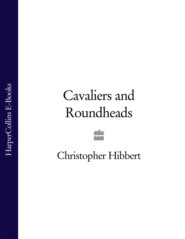По всем вопросам обращайтесь на: info@litportal.ru
(©) 2003-2025.
✖
Disraeli: A Personal History
Настройки чтения
Размер шрифта
Высота строк
Поля
(#litres_trial_promo)
Leaving Clay to finish their planned tour, Disraeli sailed for Malta, where he intended to take the earliest possible boat to England after enduring a month’s quarantine on the island. Clay was also obliged to spend a tedious quarantine in the Lazaretto in Venice, where he wrote a characteristically breezy letter to Disraeli:
Many returns of this day [21 December 1831, Disraeli’s twenty-seventh birthday]…Between us we have contrived to stumble on all the thorns with which (as Mr Dickens, the Winchester Porter, was wont poetically to observe) Venus guards her roses; for while you were cursing the greater evils [of some venereal disease] I contrived to secure the minor viz. a gleet [a form of gonorrhoea] from over-exertion and crabs [pediculus pubis, crab-lice]. The former I richly earned and it wore itself out, the latter was quickly cured and I am in high cue for a real debauch in Venice.
Yesterday being my birthday I drank our very good health…After dinner a capital batch of letters (yours included) arrived…I drank and drank again and read and re-read my letters until it became impossible to distinguish one correspondent from another. On reading what I thought was your hand-writing I found an exhortation to marry and settle, and when I took up, as I believed, a letter from my mother, I read that ‘Mercury [hydrargyrum, salts of mercury then prescribed for the treatment of syphilis] had succeeded to Venus’ – a most extraordinary communication from an elderly gentlewoman.
(#litres_trial_promo)
While Disraeli’s family naturally and strongly disapproved of James Clay, they were also concerned when he took up with another young man of equally dubious reputation, Henry Stanley, brother of Edward Stanley, the future fourteenth Earl of Derby and Conservative Prime Minister.
Having become friendly on the voyage home from Malta to Fal-mouth, Disraeli and Henry Stanley travelled by coach together from Cornwall to London, where they parted. Disraeli spent two or three nights at the Union Hotel, where he commonly stayed when in London. Stanley, so it was supposed, went home to Knowsley Hall. But he did not arrive there, and his family became worried. It was known that he had gone to London with Disraeli, who was asked to help find him; and he was eventually discovered in a gambling house kept by one Effie Bond.
Disraeli owed Bond money; and it was suspected by Henry Stanley’s elder brother, Edward, that, while pretending to look for Henry, Disraeli was, in fact, working with the unscrupulous Effie Bond to part the impressionable young man from his money.
Edward Stanley consequently conceived ‘a strong prejudice against Disraeli’, wrote Sir Philip Rose, ‘and it was not until the force of public and political affairs [when Edward Stanley had succeeded his father as Earl of Derby] induced them to become associates that his hostility disappeared. It is probable that his feeling was rather the resentment of a proud man at a stranger having become mixed up in his family secrets, and cognizance of a brother’s misconduct, than any real distrust or belief that his brother had been led into difficulties by Disraeli…The letters from Lord Stanley and Colonel Long, his brother-in-law, conclusively show that they had no complaint against Disraeli, and not only acquitted him of all blame, but were grateful for his interference and aid, and the Hon. Henry’s own letters show that Disraeli had given him the best and most disinterested advice.’
(#litres_trial_promo)
Having returned to Bradenham, Disraeli settled down to work ‘like a Tiger’. He had to undergo another ‘six weeks’ course of Mercury’ for his venereal complaint, as he told Benjamin Austen, and this had ‘pulled [him] down’. But his head was ‘all right’; and he felt quite well again.
(#litres_trial_promo) Indeed, despite the ‘overwhelming catastrophe’ of Meredith’s death, he was, he said, in ‘famous condition – better indeed than [he] had ever been in [his life] and full of hope and courage’.
His journey, as his biographer, W.F. Monypenny, commented:
proved a capital event in his life and had marked effects on his whole subsequent career, both literary and political. It not only enlarged his experience beyond that of most young Englishmen of his day, but, what was even more important to one of his peculiar temperament, it helped to give definite purpose and significance to that Oriental tendency in his nature which, vaguely present before, was henceforth to dominate his imagination and show itself in nearly all his achievements. We can see the influence of the Eastern journey in Contarini Fleming, in Alroy, in Tancred, and in Lothair; but we can see it not less clearly in the bold stroke of policy which laid the foundations of English ascendancy in Egypt, in the act which gave explicit form to the conception of an Indian Empire with the sovereign of Great Britain at its head, and in the settlement imposed on Europe at the Berlin Congress [of 1878].
(#litres_trial_promo)
6 ‘THE JEW D’ESPRIT’ (#ulink_eef16c13-2ad4-5613-8463-d13e800c0ccb)
‘Now tell me, what do you want to be?’
SOON AFTER HIS RETURN to Bradenham in 1832, Disraeli’s book, Contarini Fleming, was with its publishers and The Wondrous Tale of Alroy was shortly to follow it.
John Murray was at first in two minds as to whether or not to accept Contarini Fleming. Sir Walter Scott’s biographer, J. G. Lockhart, expressed doubts about it, and suggested that it be sent for an opinion to Henry Hart Milman, the poet and historian, who had few reservations. It might well be ‘much abused’ and was ‘very extraordinary’, Milman said, but it was also ‘very powerful and ‘very poetical’. William Beckford, to whom Disraeli sent a copy, was also enthusiastic. ‘How wildly original!’ he wrote in reply. ‘How full of intense thought! How awakening! How delightful!’ It was ‘a truly wonderful tale’.
(#litres_trial_promo)
‘As far as I can learn,’ Disraeli wrote to his sister on 28 May 1832, ‘it has met with decided success. Among others Tom Campbell [the poet and editor of the New Monthly Magazine], who as he says, never reads any books but his own, is delighted with it. “I shall review it myself,” he exclaims.’
(#litres_trial_promo)
‘Contarini is universally liked, but moves slowly,’ Disraeli continued in another letter to Sarah a few weeks later. ‘The staunchest admirer I have in London, and the most discerning appreciator [of the book] is old Madame d’Arblay [the former Fanny Burney]. I have a long letter which I will show you – capital.’
(#litres_trial_promo)
Heinrich Heine was even more enthusiastic. ‘Modern English letters have given us no equal to Contarini Fleming,’ Heine wrote. ‘Cast in our Teutonic mould, it is nevertheless one of the most original works ever written; profound, poignant, pathetic.’
This was a view the author himself was inclined to share. ‘I shall always consider [Contarini Fleming] as the perfection of English prose,’ he wrote with characteristic immodesty, ‘and a chef d’ouvre [sic].’ But the sales of the book remained sluggish; and the author and publisher received no more than £36 between them.
(#litres_trial_promo)
‘Don’t be nervous about the sale, that’s nothing,’ Tom Campbell tried to comfort Disraeli. ‘This will last. It’s a philosophical work, Sir.’
Disheartened by the poor sales of Contarini Fleming, Murray returned the manuscript of Disraeli’s next book, The Wondrous Tale of Alroy, when it was offered to him the following year. Published instead by Henry Colburn, it was even less successful than its predecessor; and, while its author had had ‘no doubt of its success’, it aroused derision rather than the ‘golden opinions’ which, so he told Sarah, he was expecting.
‘Oh reader, dear! Do pray look here,’ one critic wrote in a parody of its style, ‘and you will spy the curly hair and forehead fair, and nose so high and gleaming eye of Benjamin Dis-ra-e-li, the wondrous boy who wrote Alroy in rhyme and prose, only to show, how long ago, victorious Judah’s lion-banner rose.’
(#litres_trial_promo)
(#litres_trial_promo)
Having withdrawn his name from the books of Lincoln’s Inn, Disraeli now began seriously to consider the political career which he had been vaguely contemplating for some time past. While abroad, he had become an assiduous reader of that ‘excellent publication’, Galignani’s Messenger, and on his return he declared that, ‘in the event of a new election’, he intended to offer himself as a parliamentary candidate for High Wycombe, the constituency in which Bradenham was situated. In the meantime, with Edward Lytton Bulwer’s help, he determined to make himself better known in London society.
In letters to Sarah he charted his success in this respect. At Bulwer’s house in Hertford Street, so he told her, he met Lord Strangford and Lord Mulgrave, later Marquess of Normanby, with whom he also had ‘a great deal of conversation’, and Lord Eliot, later Earl of St Germans, who invited him to a male dinner party where he sat next to John Charles Herries, the former Chancellor of the Exchequer, ‘old, grey-haired, financial’, who turned out to be ‘quite a literary man – so false are one’s impressions’.
At one ‘very brilliant party’ at Bulwer’s he met Charles Pelham Villiers, the Earl of Clarendon’s younger brother, Member of Parliament for Wolverhampton, as well as Colonel Webster, ‘who married Bodding-ton’s daughter’, a man who ‘talked to [him] very much’ and ‘turned out to be Lord William Lennox’, ‘Colonel and Captain A’Court, brothers of Lord Heytesbury’, and Captain Yorke, later fourth Earl of Hardwicke.
Disraeli’s provenance was not such as to gain him entry yet into the greatest houses, but less particular hostesses, encouraged by Bulwer, welcomed his company and enjoyed his sprightly, witty, fertile conversation. He was entertained by Lady Cork, Lady Dudley Stuart and Lady Charleville; he became a regular guest at Lady Blessington’s house, and a close friend of Lady Blessington’s lover, the attractive, egotistical, inordinately extravagant Count D’Orsay, the husband of her stepdaughter and the acknowledged arbiter of dandiacal fashion.
At Lady Blessington’s Disraeli was introduced to Lord Durham; at the opera he met William Beckford; at Lord Eliot’s he sat next to the awkward and reserved Sir Robert Peel, the former Home Secretary and future Prime Minister, who – so he confidently assured his sister in letters which boasted outrageously of his social success – was ‘most gracious’. ‘He is a very great man, indeed,’ he told Sarah, ‘and they all seem afraid of him. By-the-bye, I observed that he attacked his turbot most entirely with his knife…I can easily conceive that he could be very disagreeable, but yesterday [at Eliot’s] he was in a most condescending mood and unbent with becoming haughtiness. I reminded him by my dignified familiarity both that he was an ex-Minister and I apresent Radical.’
(#litres_trial_promo)
Disraeli’s reception by Peel seems, however, not to have been so obliging as he claimed. ‘Probably from nervousness, Disraeli did not recommend himself to Sir Robert Peel,’ according to Lord St Germans. He asked him to lend him some papers. But ‘Peel buried his face in his neckcloth and did not speak a word to Disraeli during the rest of the meal…From his appearance or manner Sir Robert Peel seemed to take an intuitive dislike to him.’
(#litres_trial_promo)
Peel was far from being the only person whom Disraeli offended. He himself continued to assure his sister that he was the greatest social success both in London and in the country. Certainly, there were those who were overwhelmed by his brilliance. Yet there were many others who were exasperated by him; by his habit of pontificating with his thumbs tucked into the armholes of his waistcoat; by his irritating practice of prefacing his remarks with an incantation, picked up in the Near East, ‘Allah is great’; by his elaborate affectation of weary boredom on being asked to meet someone whom he had no wish to know.
‘The world calls me “conceited”,’ he wrote in what has become known as the ‘Mutilated Diary’ of 1833, because large sections have been excised from it. ‘The world is in error. I trace all the blunders of my life to sacrificing my own opinion to that of others.’
(#litres_trial_promo)
At Bulwer’s, as well as dandies and literati and up and coming politicians there was also ‘a large sprinkling’ of bluestockings, among them Lady Morgan, the Irish novelist, Caroline Norton, R. B. Sheridan’s granddaughter, the Whig hostess, and Letitia Landon, the poet, with whom her host was believed to be having an affair. She looked, so Disraeli said, ‘the very personification of Brompton – pink satin dress and white satin shoes, red cheeks, snub nose, and her hair a la Sappho’. At a later soirée, Disraeli met her again; but this time she ‘was perfectly à la française and really looked pretty’.
(#litres_trial_promo)
The prolific novelist and dramatist, Catherine Gore – whose Manners of the Day had been praised by King George IV as ‘the best and most amusing novel published in his remembrance’ – was also there, and so was another bluestocking who, so Bulwer said, was particularly anxious to meet him. ‘Oh! My dear fellow,’ Disraeli said, ‘I cannot really – the power of repartee has deserted me.’
(#litres_trial_promo) But his host insisted. ‘I have pledged myself – you must come,’ he said, and Disraeli was accordingly introduced to a very sumptuous personage looking like ‘a full rich blown rose’. ‘I never’, Disraeli commented, ‘rec’d so cordial a reception in my life.’
(#litres_trial_promo)
On another occasion, Bulwer’s wife asked him to take a lady, considerably older than himself, into dinner. ‘Oh! Anything rather than that insufferable woman,’ he said before walking languidly towards her.
‘In the course of an evening at Bulwer’s,’ Disraeli told Sarah, ‘I stumbled over Tom Moore, to whom I introduced myself…“I have heard of you, as everybody has,” he said. “Did we not meet at Murray’s once?”’









